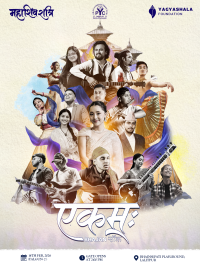Culture & Lifestyle
How Amitav Ghosh harnesses fiction to tell the truth
‘Wild Fictions’, a collection of essays, explains why the anthropologist writes the way he does.
Soumashree Sarkar
Amitav Ghosh’s merits are too many to tabulate, but it will not be impetuous to say that what he does best is write a story.
While reading ‘Wild Fictions’, a collection of his essays from the past quarter-century, I was tempted to re-read parts of the Big First of Ghosh’s fiction offerings, The Shadow Lines. It is impossible to overstate the chokehold this book has had on a couple of generations of Calcutta readers. For the first time in English books, we read of the neighbourhoods we walked in. The Bengali refugee’s indescribable smallness, her habit of suppressing, family dynamics too complicated to comprehend, nation, rupture, and the individual experience of collective loss–Shadow Lines was my first brush with the idea of postcolonial thought. In the book, in one place, the narrator takes a rusty compass to measure the distance between Khulna and Srinagar and draws a circle within which falls all manner of interesting cities from Chiang Mai to Chengdu. He remarks that almost half of humanity has lived within this circle. And then he draws another circle with Milan as its centre and sees cities which he knows only through wars. “…[W]ithin this circle there were only states and citizens; there were no people at all.”
If one had to undertake the lugubrious task of ranking fictional moments in Indian writing in English, this would perhaps appear near the top. It centred us, the reader, in sweltering India, and it did it through a story, never once wavering from the narrative of the fiction.
Thus the story has always carried what Ghosh has tried to say, even when he has gone on to write heavier (literally) books. Ghosh’s fiction always had dollops of history, and his characters have been so interesting, such victims of their times that one can never really claim to have read him only for the plot. And yet, write a compelling story he did. His characters’ journeys became ours–on ships, through time and across borders. Which is exactly why when he made the swivel to a genre of writing one can only describe as ‘fervent plea’ with The Great Derangement, it became important to note this change.
In subsequent offerings, Ghosh has given us jarring treatises on the many similar ways in which the earth has been and is being destroyed. His oeuvre has ballooned into a kind of resplendent non-fiction – even when he writes fiction, as he did in Gun Island in 2019, the clouds of concern over climate and culture darken his stories – offering his readers little escape from what Ghosh deems the primary concerns of this time.
Ghosh chooses to be a public-facing author–he is on social media, he appears on television, he gives talks. His message is present for us to see and think about. But it is Wild Fictions which offers us a rare glimpse into the social, political and natural set of circumstances that gave rise to the changes in Ghosh’s writing.
Ghosh’s interest in places that are seemingly far removed from “great global centres of history” (page 242) endures from Shadow Lines to Wild Fictions. Through his lifetime’s work, he has been taking a compass and setting it on unassuming places, only to witness the circles of time, coercion, colonialism and dreams draw themselves around them. In this volume, the people of the Indonesian Banda islands (on which he has written an entire book) which was home to the clove, rub shoulders with Ghosh’s friends who lost family in 9/11. An early-20th-century Bengali man fighting for the British in Iraq suffers alongside a man from Bangladesh, trying to go to Europe for a job with little more than a smart phone in his pocket. Because the volume compiles essays through the years, it is also a compilation of time as Ghosh sees it. The issues he deems are important to record are often broader than what we are used to in this age of algorithm-tailored feeds which give us more of our microcosm. An anthropologist through and through, Ghosh connects many dots, finding helplessness in reprehensible human behaviour. His writing is exquisite and as a reader you are bewildered by its consistent heft across all kinds of prose–fiction, speeches, essays for a digital news site and personal correspondence.
The book is also a glimpse into how Ghosh’s theoretical thought and concerns, too, have evolved. It is interesting to see how in 2004, Ghosh worries about a Sahara resort which is about to come up in the Sundarbans (it did not), and how in 2021, he is thinking about the retrofitting of historical narratives to include ignored protagonists.
Because Ghosh does not let himself be bound by the lines of subject and genre when he investigates the ways in which the dots of contemporary behaviour can be connected to the past, and because his view towards the subjugated is so very kind, it is easy to spot aberrations in this impervious thinking.
When you read in this book of Ghosh writing passionately to scholar Dipesh Chakraborty about how the role of race in determining British attitude and policy towards India is unmissable, you are left wondering how the same factor did not contribute to the wording of Ghosh’s 2010 letter to intellectuals who urged him to turn down the Dan David prize given by the Tel Aviv University, and to support the Palestinian call for boycott, divestment and sanctions. Ghosh argued then that “an acceptance of Israel’s legitimacy does not imply an acceptance of all that it does”. In the light of Israel’s genocidal attacks on Palestine, especially since October 7, 2023, you are left wondering about Ghosh’s line of thinking–one that can be so forthright against colonialists occupying a particular space and time, but not another.
Ghosh has travelled in these spaces, the devastation of which we see on Instagram Reels, and knows of that world intimately. The book’s focus on travel and lived research thus leads you to wonder if the nature of anthropological study has now changed forever. Our world and humanity is heavily online. Our opinions are ready. Does one author’s lived experiences contribute to our understanding anymore?
I do not know, but luckily for Ghosh, he can bank on the one instrument that he has always had–the power of his storytelling. And it is in this odd collection of essays, when he describes a government official looking for remains of his wife and child who he lost to the 2004 tsunami but refusing to take back any other remnant of his lost life, that you get a glimpse of the storyteller in Ghosh again. To be able to harness the style of fiction to tell the truth is a beautiful power. Ghosh’s ability justifies the book and its title.
Wild Fictions
Author: Amitav Ghosh
Publisher: Fourth Estate India
Year: 2025
Published in special arrangement with TheWire.in




 20.12°C Kathmandu
20.12°C Kathmandu















